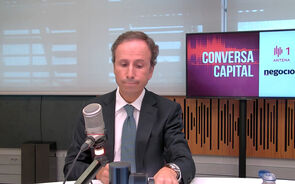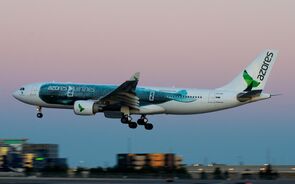Recovery Invisible
1 Mensagem
|Página 1 de 1
Recovery Invisible
Firms Write Off 2003 Saturday January 18, 12:02 pm ET By Lucas van Grinsven AMSTERDAM (Reuters) - After two years of hoping in vain for a recovery, which many said was only six months away, companies are now writing off all of 2003 and focusing on 2004 for any improvements in their markets. ADVERTISEMENT Two weeks into the new year, key European and U.S. companies have toned down their hopes for economic bloom. Slow consumer spending, a possible war in Iraq and the resulting high oil prices could further dampen business activity. In the past week, airlines, technology and chemicals companies, banks and retailers have all said they are hesitant to predict the upturn for this year, opting for caution after misreading their markets during the past two years. The chief executive of telecoms equipment giant Cisco, John Chambers, started off the miscalculation season in January 2001, when he said he was confident the downturn could be over in six months even though his clients' businesses had hit a brick wall. "I believe we're probably talking a two-quarter phenomenon, although it could last longer. I'm talking the first half of this year for most companies in the U.S.," Chambers said then in Davos, Switzerland, where many of the world's business leaders will gather again next week to discuss the future. DAVOS MANTRA Chambers wasn't alone with his turnaround prediction in early 2001. A second-half recovery became a mantra in the cramped corridors of the conference at the Swiss ski resort. Now, however, few CEOs express such bold dreams. Gerco Goote, head of equity research at ABN Amro Asset Management in Amsterdam which oversees 30 billion euros ($31.96 billion), said firms are clearly afraid to stick their neck out. "The word 'caution' is on every page of our research. Companies might be overdoing it, but nobody knows," he said. Bank of America Chief Financial Officer James Hance said this week he felt positive about consumer and mid-markets, but was "not comfortable with some segments of the large corporate book." He expects quarterly charges to remain high in 2003. Hopes for a recovery are also slim in the airline industry, where U.S. players are experiencing their worst ever crisis following the September 11, 2001 attacks on the United States. U.S. airlines lost between $8 billion and $10 billion in 2002. German airline Lufthansa abandoned its 2003 operating-profit target last week, following in the footsteps of Dutch carrier KLM, while Delta Air, the third largest U.S. airline, expects to book another loss in 2003. Investors are a bit miffed about so much doom and gloom. Florian van Laar, asset manager at Amsterdam-based Eureffect: "I'm surprised when I hear people writing off all of 2003. It's like when you start a 500 kilometer trek and say after 100 meters: 'This trip ain't worth it'." Two weeks into the year, it's really impossible to tell what's going to happen at the end of the year, he added. U.S. chemicals giant DuPont said on Wednesday it was struggling with anemic demand and higher oil prices, up as a result of war looming in the Middle East. Chief Executive Cees van der Lede of DuPont's smaller Dutch rival Akzo Nobel said in his New Year's speech there was no reason to expect that 2003 would be any easier than 2002. British electronics retailer Dixons said last week that pressure on profit margins would continue and like-for-like sales would remain static for the time being. The firm was hit by sluggish Christmas sales due to the economic uncertainty. "A poor December has rocked management's optimistic assumption that the product cycle is more important than the consumer cycle," investment bank WestLB Panmure said. CHIPS DOWN The technology sector remains particularly weak after it was badly bruised in the last two years as companies -- telecoms firms in particular -- spent less on computers, software and IT services after the Internet bubble burst in 2000. U.S. chip behemoth Intel sees little improvement in its markets for the first six months, and cut its 2003 investment budget to below $3.9 billion from $4.7 billion. Dutch chip equipment maker ASML said on Thursday a recovery in the battered sector, in its worst downturn ever, could happen in the second half, but the company declined to give a forecast and showed a thin order backlog entering 2003. The same day, U.S. computer maker Sun Microsystems failed to reiterate a November target of turning a profit by the end of its fiscal year in June, blaming a murky economy. France's Alcatel's Chief Executive Serge Tchuruk this week forecast another down year in the telecoms equipment market after a 50 percent fall over the last two years. Software makers see no recovery either. U.S.-based Microsoft said sales for the fiscal year ending in June would fall short of expectations. "Our view continues to be that there has not been much change in the health of the PC ecosystem where things have continued to be soft," said Chief Financial Officer John Connors. U.S.-based IBM, which has its fingers in virtually all technology pies, said on Thursday it thought the environment had begun to stabilize. But the company had already said this last April, when CFO John Joyce announced that IBM could achieve 2002 earnings of $4.16 a share on flat revenues of $83 billion. On Thursday the computer services-to-chip giant reported 2002 sales of $81.2 billion and earnings of $3.07 per share, well below its April hopes, even if integration and restructuring charges of $0.88 per share would be added. ($1=.9387 Euro)
Boa tarde,
Boa tarde,
Davos
- Mensagens: 41
- Registado: 5/11/2002 7:28
1 Mensagem
|Página 1 de 1
Quem está ligado:


